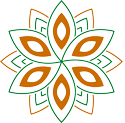Hijama
Introduction
Hijama is an ancient Arabic therapy for treating many illnesses by applying vacuum stimulation to certain points of the body, causing local tissue congestion, in which a healing effect takes place. Is a safe, non-invasive, and economical way of curing and preventing many diseases.
The word ‘hijama’ means ‘drawing out’ in Arabic. In this non-surgical procedure, toxic blood is drawn out from the body. Certain hijama points on the body are addressed to do so.
On such selected points, blood is encouraged to accumulate and then sucked out by using a little vacuum system. The blood is made to accumulate on the surface of the skin where minute incisions are introduced on the skin; the blood comes out from the incisions and is collected in a cup from where it is removed.
Cupping has been found to affect the body up to four inches into the tissue causing tissues to release toxins, activate the lymphatic system, clear colon blockages, help activate and clear the veins, arteries, and capillaries, activate the skin, clear stretch marks and improve varicose veins.
SUNNAH OF PROPHET MUHAMMED
Hijama in Islam
The act of performing Hijama is a Sunnah of the Prophet Muhammad صل الله عليه و سلم and it is extensively reported in a wide collection of authentic hadith. Its practice is strongly recommended and emphasized in a number of narrations. The practice of Hijama forms an integral part of Islamic Prophetic Medicine.
When should one do Hijama Therapy?
It is recommended that can be practiced on the ‘odd’ days of the Lunar Calendar. Further to this, the specifically prescribed days are Monday, Tuesday, and Thursday. The optimum Sunnah days to perform Cupping Therapy are the 17th, 19th and 21st days of the Lunar Calendar providing these days coincide with Monday, Tuesday or Thursday. The Prophet (peace and blessings of Allah be upon him) advised against practicing Hijama on Friday, Saturday, and Sunday and very strongly advised against practicing Hijama on Wednesdays.
Hijama Sunnah Points
Highlighting the particular points where the Prophet himself got cupped, the following are regarded as the Sunnah Points:
- Between the Shoulders (KAHIL – Upper Back) – The area between the shoulders blades, most commonly in line with the inferior end of the scapula is ideal for cupping therapy. This particular area is best for performing general Hijama as it is the area where toxins and impurities in the blood accumulate and stagnate.
- The Centre of Head (Yafookh) – It is commonly used to treat all mental, emotional disorders, but also useful for headaches, epilepsy, neurological and endocrine disorders.
- Above the Nape Cavity (Qamahduwah) – Cupping therapy at this point is a cure for 72 diseases some of which include diarrhea, constipation, backbone pain, and stomachache. It improves the health of the pancreas and enhances the overall efficiency of the digestive system.
- Top of the Foot – This area is traditionally used to treat swelling, headaches, dizziness/ vertigo, abdominal pain, bloating & constipation. It can also be used to treat ADD/ADHD, mania, restlessness, palpitations, and epilepsy.
Ibn Umar (may Allaah be pleased with him) reported that the Messenger ( SAWS ) said, “Cupping (hijama) on an empty stomach is best. In it is a cure and a blessing. It improves the intellect and the memory…”
Saheeh Sunan Abi Dawud (3858)
“Indeed, the best of remedies you have is hijama (cupping)”.
Saheeh Al Bukhari
Unani Medicine
Introduction
The “Unani medicine’ is a healthcare system based on the Greece/Arabic philosophy which consists of four bodily humors: blood, phlegm, yellow bile, and black bile. It encompasses a range of practices, including diet and nutritional therapy, herbal medicine, life style, stress management, cupping, hijama, body detoxification (diaphoresis, diuresis, purging, emesis) and exercise. This system of medicine makes use of medicinal plants as a remedy for ailments. It is based on the principles of the ancient Greek physician Hippocrates and the teachings of the Islamic scholar Avicenna.
Unani Practitioner at House of Nature will provide service in accordance with DOH scope of work as a Licensed Unani Practitioner. Its scope will include preventive, curative and wellness therapies of the patients.
